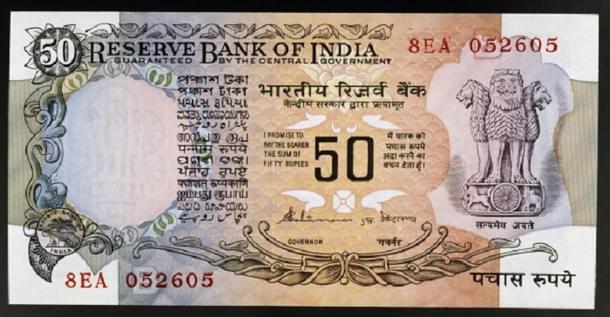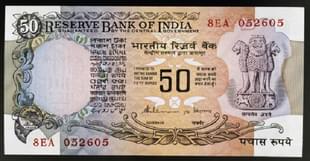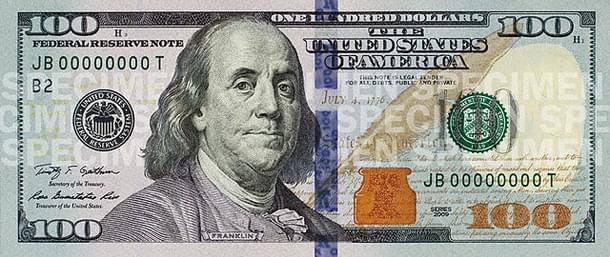Economy
Why The Prime Minister Should Reject The Idea of a Bank Transaction Tax
Ravi Mantha
Feb 09, 2016, 06:29 PM | Updated Feb 12, 2016, 05:19 PM IST
Save & read from anywhere!
Bookmark stories for easy access on any device or the Swarajya app.


The idea to substitute Income and Consumption taxes with a bank transaction tax is dangerous, wrong, and could potentially lead to a total collapse of the Indian economy.
During the run-up to the Indian Parliament elections in 2014, I was one of the campaign staffers working with then Gujarat CM and BJP PM candidate Mr. Narendra Modi’s office, on economic policy issues. This is when I came across one of the more relentless single-issue political organizations in India – Arthakranti.
I met Arthakranti representatives at our campaign office in Mumbai, and was immediately struck by the fact that they were endearing, earnest, well-meaning and nice, people. By the time I had met them, they had already met all the senior leaders in the BJP in their determination to get their views across, and had even convinced a number of senior leaders on the worthiness of their cause. They appear to come from a right-wing ideology that attracted a certain type of BJP leader to their arguments, but make no mistake, they are not economic right-wingers in the least. Their ideology is closer to socialism.
Today I read a Swarajya article mentioning that they are still pursuing their goal, and have now presented to the Prime Minister’s top advisers, and I wish to share a simpler version of the analysis and findings that our team shared with the then candidate Modi.
Arthakranti’s views are detailed on their website, but let me take the salient features of their proposal and discuss the problems with their approach-
Lack of Expertise
If you look at the backgrounds of the Arthakranti promoters, there is not one person with an economics degree or training. Further, there is not one economist of any standing who has endorsed their views. In short, it is not that there is a debate about the merits of their proposal between economists, as can happen with any serious issue. It is simply that no serious economist can endorse their approach. Arthakranti is like a team of mechanical engineers who have come up with a proposal to perform brain surgery on you, and refuse to take no for an answer. But the answer is still no.
The Proposal
Now let us look at their proposal at a high level. In a nutshell, they wish to replace all taxes with a transaction tax that they claim would be about two percent of all transactions. In order to force all transactions to go electronic (to become traceable), and eliminate black money at the same time, they would ban all high-denomination notes, namely currency above Rs 50 denomination.
Drawbacks
Let us look at each of these points. 97 percent of all currency in circulation by value is represented by 100, 500 and 1000 rupee notes. If you remove them from circulation, in the short term that will have the effect of reducing the money supply by 97 percent. Among other disasters, this will cause the three percent of notes remaining to disappear from rural India. In a country where some 60 percent of the public do not have bank accounts, you can imagine what would happen if there was no currency left in rural India, and most currency disappeared even in urban India. The economy would grind to a total halt, there would be food riots, and the government would fall very quickly.
The second point is that black money transactions would not cease, they might simply move to dollars. A look at Indonesia gives you a clue. In India, 11.6 percent of the GDP is the value of the currency in circulation. In Indonesia, it is only 5.5 percent, because the highest denomination note in Indonesia is the equivalent of around Rs 500.
But that does not mean there is no black money in Indonesia. It is just that all the black money transactions happen in 100 dollar bills. Now imagine the actual capital flight that would occur as all rupees disappeared and got converted to dollars. The transactions would still happen in India, but beneficiary would be America because they will happen in dollars.

This brings us to the important issue known as seignorage. Open your wallet and take a look at any currency note. You will realize that the money you carry is not actually money, but it is actually a promissory note. That’s right. The RBI “promises to pay the bearer the sum of X rupees”. In other words, it is an interest-free loan to the government.
Now the total amount of rupee notes in circulation is 10.7 lakh crore. At eight percent interest (which is the borrowing cost of the Indian government), the government in effect makes a revenue of 85,000 crore per year on the currency in circulation, which is known as seignorage. This would not just disappear, it would actually go to the US treasury if Indians started transacting in dollars.
On that note, it is estimated that one trillion US dollars is in circulation outside the USA, which represents $40 billion in free interest to the US government (at their borrowing cost of four percent). It is no wonder that America’s 11th largest export is the US dollar.
The last and most crucial point is that there is no country in the world that has ever successfully introduced a transaction tax. Brazil tried it and failed. In fact, even India had a transaction tax under Indira Gandhi which badly flopped.
Reality is that high value transactions will simply move to the barter system, move abroad, or will find other ways to evade this ridiculous tax. People will enter into repurchase agreements that will easily get around this. Taxing the velocity of money is a total disaster of an idea that has never worked anywhere.
Arthakranti is a single-issue organization whose goals may be laudable (ending black money, making the tax system simpler), but their means of achieving this are laughably amateurish, and the results of their experiment would kick this government out of power and set the economy back by decades. Heaven forbid their attempts to try their whims and fancies on something that affects every single Indian.
Ravi Mantha, a lover of Idlis and food, is a nutritional and wellness expert and the author of “The Baby Elephant Diet: A Modern Indian Guide to Eating Right”. His first book on health is titled “All About Bacteria”. Ravi is an organic farmer, healthguru and specializes in treating chronic pain and illnesses. He tweets at @rmantha2 and is on Facebook at www.facebook.com/ravi.mantha.author





